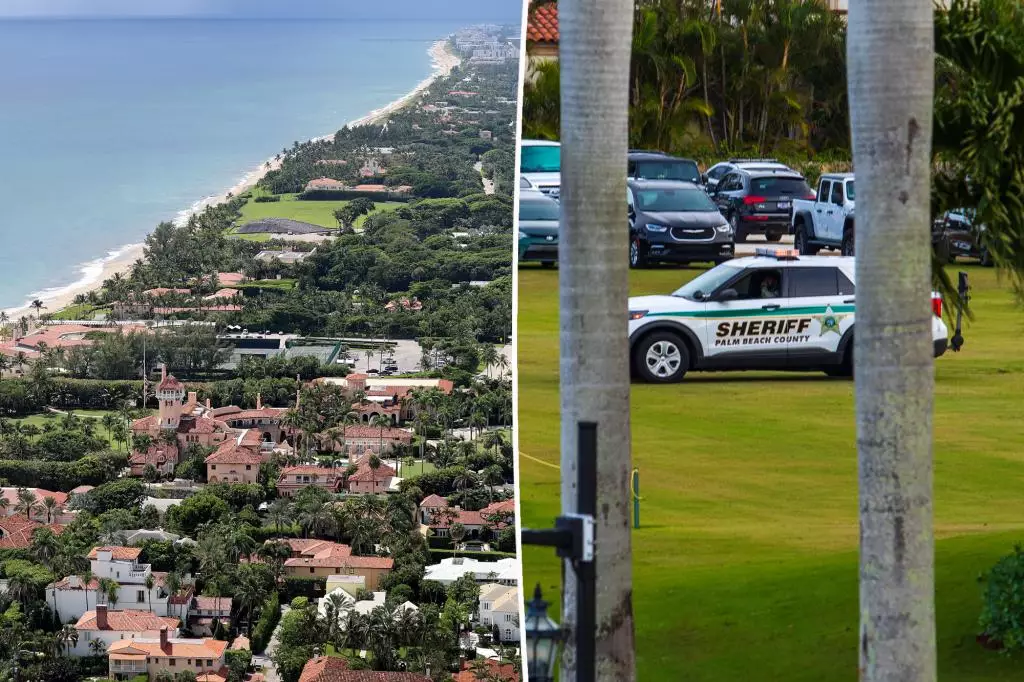Palm Beach, often associated with affluence and luxury, is currently grappling with emerging security threats that have become more pronounced following the heightened media attention surrounding high-profile residents, including former President Donald Trump. As property prices surge, the town is experiencing a dual phenomenon: a “Trump bump” in real estate transactions and an uptick in criminal activity. Insiders in the area suggest that the influx of attention has drawn not only wealthy buyers but also opportunistic criminals who see ripe targets in the affluent population.
Local authorities have reportedly issued stern warnings to residents, urging them to take precautions by securing their homes and vehicles. An email sent to residents emphasizes the need to keep valuables out of sight and to lock up their properties diligently. This advisory marks a departure from the usual norms in Palm Beach, where many residents historically felt comfortable arriving home to unlocked doors and open windows. The shift underscores a growing sense of vulnerability among locals who’ve long relished their safe, secluded lifestyle.
In response to rising crime rates, many residents have begun to invest in private security services, often hiring armed personnel from major cities like New York and California, indicating a serious concern for personal safety that hadn’t been previously recognized in this high-income enclave. This escalation in demand for security has brought to light the limitations of local policing resources in keeping pace with the demands posed by a more crime-conscious community.
Furthermore, the increase in protective measures extends beyond individual residences. The famous Mar-a-Lago club, where Trump holds regular gatherings, has ramped up its security protocols to unprecedented levels. The Secret Service has instituted multiple security checkpoints, including vehicle inspections and the deployment of bomb-sniffing dogs, making access to the property akin to entering a presidential facility. Reports of advanced surveillance systems, including robotic dogs, illustrate the lengths to which security measures are evolving in response to new threats.
As the tension escalates, the contrast between the traditionally peaceful enclave and the current climate of fear becomes stark. While West Palm Beach appears to be particularly afflicted by crime, the reminders circulating among Palm Beach residents serve as a wake-up call about the community’s evolving dynamics. The elevated anxiety among the wealthy owners underscores the precarious balance of enjoying affluent lifestyles while grappling with unforeseen challenges posed by crime.
Compressed by the pressures of securing their opulent homes, residents now face an unprecedented dichotomy: the necessity of protecting their belongings against the backdrop of their long-held belief in the safety of their exclusive community. As these developments unfold, one must ponder the implications of fame and affluence on personal security in coveted locales like Palm Beach. The intersection of luxury living and rising crime may redefine how residents, both old and new, navigate their daily lives in this renowned town.

